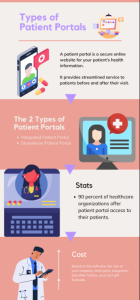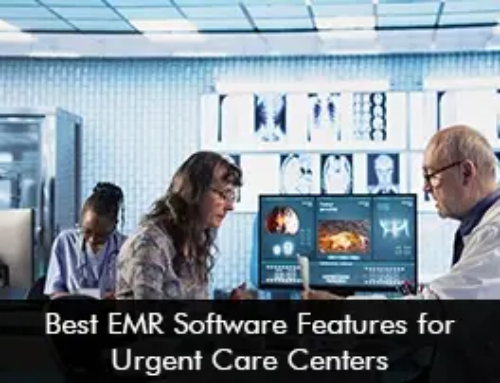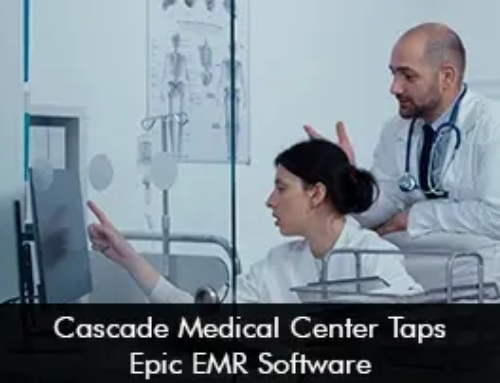Patient portals in EHR software have revolutionized the patient-provider relationship. This blog delves into the unique role of patient portals in EHR software, showcasing how they empower patients, foster engagement, and optimize healthcare delivery.
Access to Personal Health Information
Patient portals act as secure gateways, providing individuals with direct access to their personal health information. Patients can now conveniently access their lab reports, medications, and immunization records, all from the comfort of their homes. This level of accessibility fosters patient empowerment, enabling them to participate in their own healthcare journey actively.
Seamless Communication and Appointment Management
Patient portals bridge the gap between patients and healthcare providers, facilitating seamless communication and enhancing engagement. Through secure messaging systems, individuals can directly communicate with their healthcare team, seeking clarifications, discussing concerns, or requesting prescription refills. Moreover, portals offer features for online appointment scheduling, eliminating the need for time-consuming phone calls and streamlining the process for patients and providers.
Personalized Health Education and Resources
An informed patient is an empowered patient. Patient portals serve as virtual libraries, offering educational materials, resources, and personalized health recommendations tailored to individual needs. Patients can access reliable information about their conditions, treatment plans, preventive measures, and lifestyle modifications. By actively engaging in their health education, patients can make informed decisions and take ownership of their well-being.
Medication Management and Prescription Refills
Patient portals simplify medication management, ensuring adherence and reducing the risk of errors. Individuals can view their current prescriptions, request refills, and set up reminders for timely medication intake. This functionality enhances patient safety and reduces the likelihood of adverse drug events. With automated refill requests, patients can conveniently request prescriptions, saving time for both patients and providers.
Secure Data Sharing and Collaboration
Patient portals foster seamless data sharing and collaboration among healthcare providers. Specialists, primary care physicians, and other healthcare professionals can access and exchange patient information securely, leading to improved care coordination and continuity. This collaborative approach enables providers to make well-informed decisions based on complete and accurate medical records, ultimately benefiting patient outcomes.
Remote Monitoring and Telehealth Integration
Patient portals play a critical role in facilitating remote monitoring and virtual consultations. By integrating with EHR software, portals enable patients to share real-time health data with their healthcare providers, such as vital signs, activity levels, or glucose readings. This remote monitoring capability allows for proactive interventions, timely adjustments to treatment plans, and improved chronic disease management.









